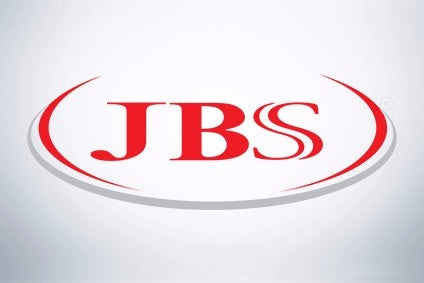
A US share offering is still on the cards for Brazilian meat giant JBS as a “driver for accelerated growth”.
Chief executive Gilberto Tomazoni, who was promoted to the CEO role at the start of the year, made the announcement in a follow-up conference call with analysts this week after the Sao Paulo-listed group reported a 13% increase in second-quarter revenues.

Discover B2B Marketing That Performs
Combine business intelligence and editorial excellence to reach engaged professionals across 36 leading media platforms.
An initial public offering in the US by JBS’ international subsidiary – the Netherlands-based JBS Foods – was first proposed early in 2017 but was pulled later that year amid a corruption scandal revolving around its senior executives, namely the Batista brothers Joesley and Wesley. They have since departed.
Tomazoni said when asked about the IPO: “The listing in the US continues in our plans and we are continuing to study the models. I want to emphasise this is one of our main priorities because of the potential to unlock value to the company and a driver for accelerated growth.”
But JBS does not seem to be in a rush to exercise an IPO after paying down debt, which gives the company more time to assess its options, the CEO said.
Since the second quarter of 2017, JBS has cut its debt by US$5.3bn, thereby reducing annual interest payments by $400m a year, Tomazoni pointed out.

US Tariffs are shifting - will you react or anticipate?
Don’t let policy changes catch you off guard. Stay proactive with real-time data and expert analysis.
By GlobalData“Since we don’t have the urgency to pay down debt any more we have time to think of the best structure that will unlock value to our shareholders,” he added.
CFO Guilherme Cavalcanti said leverage had been reduced to 2.8 times JBS’ net debt-to-EBITDA. And Tomazoni added the company’s long-term target is for the ratio to stay between two and three times, a “comfort level” as he called it, “especially in an environment of decreasing interest rates and also considering that we extended significantly the maturities of our debt”.
The CEO was asked by one analyst what leverage level he would be willing to take on board to action further acquisitions.
“We have a limit of 3.75 [times] in order to pay extraordinary dividends, and a limit of 4.25 for acquisitions,” he responded. “But it’s worth mentioning that if we pass two quarters above 3.75, the Executive Board has to present to the board of directors, a contingent plan to bring down leverage ratios.”
JBS’ second-quarter revenue came in at BRL51bn (US$12.8bn), up 13% on the corresponding quarter last year. In the first three months, it delivered BRL44bn, an increase of 12%.
Second-quarter EBITDA rose 20% to BRL5.1bn (Q1 BRL3.2bn), while net income was BRL2.2bn versus BRL911m a year earlier.
Tomazoni, meanwhile, said JBS expects to benefit from the African Swine fever outbreak in China which has decimated the Asian country’s hog herds, led to a global pork shortage and pushed up base prices. It has since spread to other parts of Asia and some countries in Europe.
“I’m very optimistic about the company’s future,” the CEO told analysts. “I see a very favourable market. In addition, the industrial cycle is very positive. The events of African Swine fever in many countries, in addition to the increase in the export flows, should create opportunity to accelerate the growth of our branded and value-added products.”



